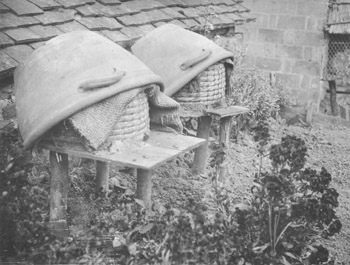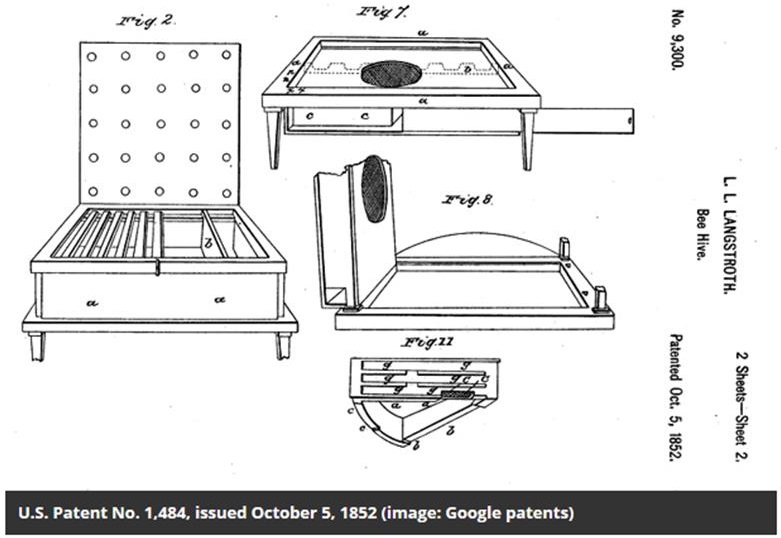- Stay Connected
 Abraham Lincoln
If given the truth, the people can be depended upon to meet any national crisis...
Abraham Lincoln
If given the truth, the people can be depended upon to meet any national crisis...
 Guildford news...
for Guildford people, brought to you by Guildford reporters - Guildford's own news service
Guildford news...
for Guildford people, brought to you by Guildford reporters - Guildford's own news service
Beekeeper’s Notes: Momentous Changes To Come
Published on: 1 Dec, 2018
Updated on: 1 Dec, 2018
Hugh Coakley keeps bees in Worplesdon. He forecasts momentous changes in beekeeping in what otherwise has been a craft which has only gently bumped forward into the 20th century.
Change used to be very slow. A few centuries ago, you could confidently predict how you would earn your living and where you would live. Your parents probably knew who you would marry (or they fondly hoped they did).
On came the industrial revolution in the 1800s and the technology explosion in the 1900s and and it seemed like nothing would remain the same.

Skeps were used in Britain since Roman times and were still in regular use in Surrey in 1904. “….. the old straw hive is still in use amongst the poorer folk. Luckily for appearance sake, it is cheaper than the more scientific wooden one……….” (from ‘Old West Surrey by G Jekyll).
In the 2000s, nano technology, computing (with Moores Law predicting a doubling of computer power every two years) and a gathering understanding of DNA are some of the things that have made a visible difference to our lives.
Beekeeping, on the other hand, has hardly changed at all. Change has been gentle, mainly tiny steps forward but with the occasional leap throwing us all into a new era.
The beehive design that we use now, the Langstroth moveable frame hive, was patented in 1854. It allowed honey to be harvested without killing the bees – a great thing. Eventually, it supplanted the skep, the previous common hive that had been around since pre-Roman times, and it became the standard.
But it took 50 or 60 years for that to happen. There were other inventions around the same time such as the wax foundation and the smoker, but effectively, there has been no significant change from that basic design since then, over 160 years.
The world has been rushing past the beekeepers. Maybe that’s a good thing but I think that is likely to change.
There is a huge amount of research happening now; we are constantly prodding and peering at the bees and their lives and capabilities.

The Rev Langstroth patented hive, dated 1852, transformed beekeeping practises. It enabled honey to be harvested without killing the bees. The Langstroth hive is still the most common hive in the US and Europe but, unsurprisingly, the British have their own version called the National which is more or less the same but different dimensions.
The national body that promotes the craft of beekeeping in the UK, the British Beekeepers’ Asociation, generally covers the latest research in its monthly magazine. This month it reported on research into tracking individual honey bees within a full scale hive (50,000 bees) using a clever gizmo at the hive entrance. There was also a vibration device to monitor the amount of brood in the hive; important in helping understanding the health of the colony.
So technology is catching up even in beekeeping.
Beekeeping is part science, part animal husbandry, a large measure of experience, part art and part craft. That’s the beauty of it.
But the research will eventually have an impact on what we do and how we do it.
It isn’t difficult to forecast that in 10 years or less, new beekeepers (and old) will be buying hives which will have systems built in to them to do all sorts of things that we now do on our manual hive inspections. Things which would very useful to be done automatically and without intrusive inspections. It would be surprising if it didn’t happen.
The new devices could monitor and report on the onset of swarming behaviours in the bees or count the number of bees in the hive at any one time or even give an indication of disease or tell us how much honey or pollen is actually in the hive. All this and probably more. It will take away a lot of the guesswork in the management of bee colonies.
The trick will be to keep the art and craft. We want technology to be a hero to beekeepers, not beekeepers losing the feel for their bees and bees and beekeepers ending up as the victim of the new tools.
Beekeeping tends to be slow to take on change, maybe that’s why people like it. But it will happen.














Recent Comments